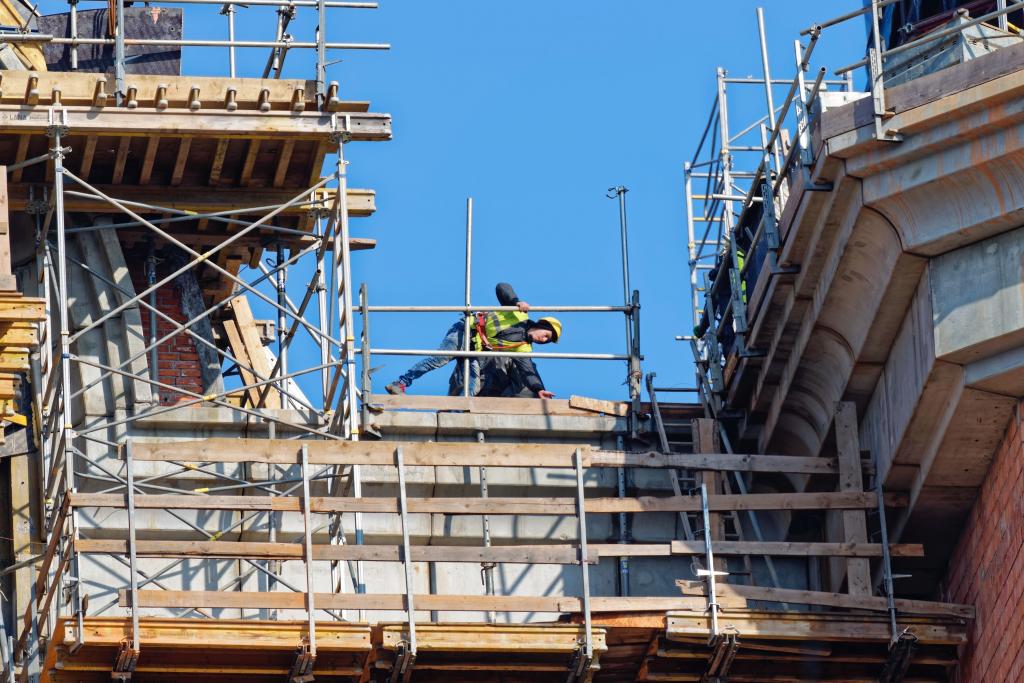
I previously wrote about the first half of the book Divine Renovation by Fr. James Mallon, in which he advocates for a revival of evangelism among Catholics, and a revival of moribund parishes in general, and talks about what that means in terms of Sunday liturgies: a renewed emphasis on praise and on beauty, and on quality preaching.
Some of the other uncontroversial elements of his program include monthly Name Tag Sundays, an invitation not just to greet but to pray for their pew-neighbor at mass, an after-mass prayer ministry in which trained volunteer parishioners are available to pray over churchgoers, and the communication of expectations via a brochure for newcomers which explicitly states that everyone ought to be an active member rather than just a weekly churchgoer. He also has a Protestant-like annual stewardship initiative, which I think Chicagoland Catholics would be much more accepting of if it’s in replacement of rather than in addition to the diocesan Annual Catholic Appeal. And he emphasizes “strength-based ministry” for pastoral staff.
That’s the part of his program that’s easy to buy into.
The second half is where I’m more hesitant.
To begin with, he starts with the prescription of using the Alpha Course, both for existing parishioners to help them revive their spiritual life rather than just plodding along with praying and paying, and for new parishioners, who are expected to be brought into the church as a result of the increased “missional” sense of the existing parishioners, as they begin to feel emboldened, by the Alpha experience, and the continued support of their faith life beyond it, to invite others.
The Alpha Course had its origins in an Anglican church in England, but it has been used by all manner of denominations because its objective is to preach the core gospel message, with the idea being that denominational specifics will be filled out later. Its fundamental concept is a combination of teaching the gospel and creating a feeling of belonging through shared meals at each of its 10 weekly sessions and cumulating final day or weekend retreat, and its objective is a “personal encounter with Jesus and a decision to follow him.” He speaks of attempting to reach a “tipping point when a substantial number of parishioners have been touched by the experience.” And much of what Mallon describes as having implemented in his parish, he deems attempts to “move a little bit of Alpha . . . into the sanctuary” (p. 144) — including (can you imagine this at your own parish?) an actual Altar Call (p. 148)!
Mallon also instituted what he calls “connect groups”, which are what he deems “mid-sized” groups rather than small groups — intended to be large enough so that you don’t feel quite as obliged to talk or quite as out-of-place if you don’t care to but small enough to provide support to their members, meeting twice monthly for a shared meal, prayer and song, a talk by a member, and more prayer. (This doesn’t sound like a typical “faith-sharing” group where everyone just gropes around for the right profound-sounding but really kinda trite thing to say.) It appears that, rather than membership being reshuffled periodically, new members are added and as a group grows, it splits off into two smaller groups, but it’s not entirely clear.
But here’s the catch: Alpha is very, er, charismatic. Here’s some commentary on the program from the Bible Answer Man, an at-the-time evangelical Christian (now Orthodox, but this was clearly written from an evangelical Protestant perspective). Skip his complaints that the program doesn’t emphasize Protestant teachings like sola scriptura and scroll down to the very bottom: Alpha teaches such Charismatic/Pentacostal ideas as being “filled with the Holy Spirit” in ways that cause one to shake or otherwise be affected physically, and teaches speaking in tongues.
Exactly to what degree Mallon embraces these elements isn’t entirely clear but he does write about the importance of “experiencing the Holy Spirit” and the power that this has. During the Alpha retreat, “each person [is] prayed over to be filled with the Holy Spirit” (188) — and the effect of the focus on the Holy Spirit is enthusiasm and an emotional response that we in the West tend to find “weird” but is seen as perfectly normal elsewhere.
So let me pause for a minute before I discuss the remaining chapters — because:
I’m not comfortable with that.
I know that there are Catholics who are attracted to charismatic elements of worship and prayer, and I don’t have an issue with that, so long as that’s their decision. Maybe they’re better Catholics than I am, but I know that there is more than one right way to be Catholic.
And this makes it an unsettling prospect that Cupich might want to impose this on all parishes in the Archdiocese. Have you ever heard him speak of any of these ideas, of being filled with the Holy Spirit, of feeling a sense of enthusiasm and having an emotional relationship with God as a result? I certainly don’t have any sense that this is something of any particular importance to him, so much that he might view it as a useful tool — which means that he views the parishioners whom he has charge of as his pawns, to be sent off to “do Alpha” because he thinks it’s a good strategic plan. And if that further means that he views the idea of “being filled with the Holy Spirit” not as something real but as a good mechanism to build better Christians, well, that’s even worse.
Back to the book . . .
Mallon then talks about various practical elements of parish life. He conducts baptisms as a regular part of Sunday mass rather than a separate “family event.” In response to a religious ed experience in which the kids were dropped off but the family never attended mass, he restructured it into an open-ended family program separated out from sacramental preparation at any age where the family is ready, with the expectation that the entire family is to make a commitment to their faith rather than the child getting a frilly dress or suit for first communion, never to be seen again. They mandate Alpha as a part of marriage prep.
And finally, Mallon talks about parish leadership. I’m sure this is fine, I skimmed through it and didn’t really have a strong reaction except that much of this is more difficult when the staff in place isn’t exceptionally skilled at their jobs because you’re trying to scale this up from a small group of self-selected parishes to a much wider group — and, after all, remember that fully half of the priests and lay staff in a country, state, community, are destined by the math of it all to be below average.
So I have doubts and would love reader comments, especially if you know more about Alpha.
You can also browse through the website of the “original” Divine Renovation parish, St. Benedict in Nova Scotia.
Image: https://www.pexels.com/photo/blue-sky-building-cathedral-city-880697/












